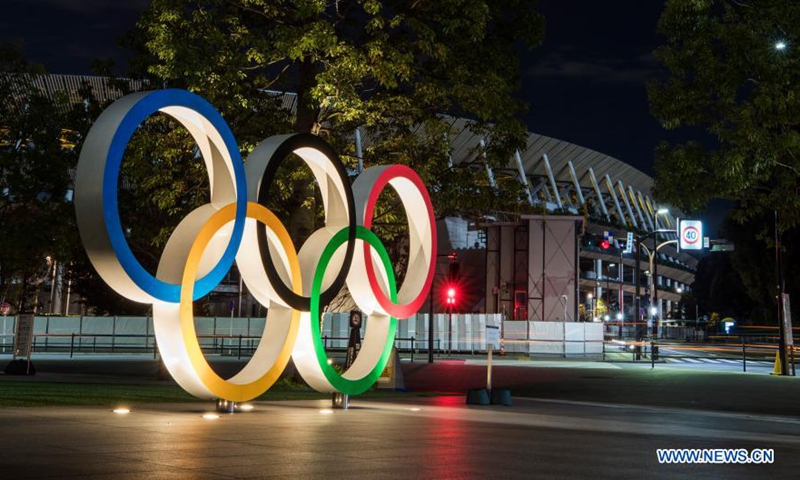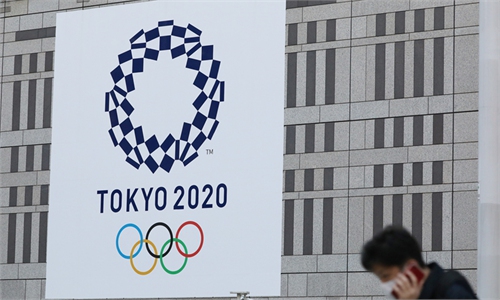Tokyo Olympics organizers say Games cancelation report ‘fake news’

Photo taken on Nov. 10, 2020 shows the illuminated Olympic rings and the new National Stadium, the main venue for Tokyo Olympics and Paralympics, in Tokyo, Japan. Tokyo is the capital and most populous prefecture of Japan. As you might expect from one of the world's most bustling cities, Tokyo is phenomenally vibrant at night. (Xinhua/Du Xiaoyi)
Tokyo Olympics organizers played down a poll showing plunging support for the Games on Tuesday and said a report claiming cancelation could be discussed next month was "fake news."
The comments, less than 200 days before the postponed Games start in July, come with greater Tokyo under a state of emergency over a spike in coronavirus cases and with countries around the world battling outbreaks.
In a New Year's address to staff, Tokyo 2020 CEO Toshiro Muto put a positive spin on a Kyodo news poll published Sunday showing 45 percent want the 2020 Games delayed again, with 35 percent favoring outright cancelation.
"The number of people calling for it to be canceled has only risen by about five percent," Muto said.
"The number of people calling for it to be postponed has risen a lot, but that means those people still want it to be held," he added.
"Of course, for it to be held, we have to guarantee that we hold a safe Games with anti-virus measures. If you think of it in those terms, I firmly believe people will get more and more behind it."
Muto also dismissed as "fake news" a Japanese media report claiming the International Olympic Committee and Tokyo 2020 organizers would debate the fate of the Games in February.
"When these types of reports surface, some people might feel anxious about them," said Muto.
"I want to say that we are not thinking that way at all, and that these reports are wrong."
Japan's government is expected to expand the state of emergency soon to several additional regions, and it has already lowered spectator caps at sports events in greater Tokyo to 5,000 people or 50 percent capacity, whichever is less.
Tokyo 2020 organizers have drawn up a raft of anti-virus guidelines that they say will allow the Games to go ahead without a vaccine, and Muto said he was confident they will deliver after coming through the trials of last year.
"We still have a lot to do but we have overcome a lot and that gives us a lot of confidence as an organizing committee," said Muto.
Japan is not expected to begin vaccination before late February.

